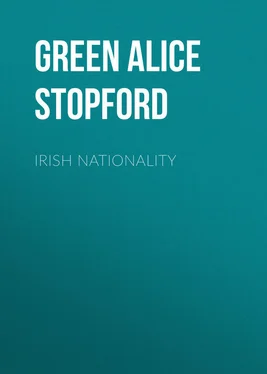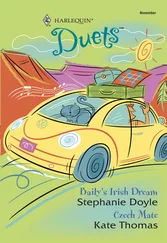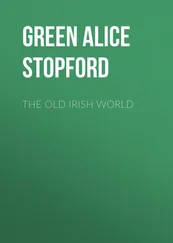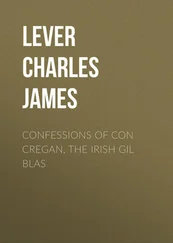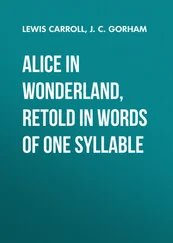Alice Green - Irish Nationality
Здесь есть возможность читать онлайн «Alice Green - Irish Nationality» — ознакомительный отрывок электронной книги совершенно бесплатно, а после прочтения отрывка купить полную версию. В некоторых случаях можно слушать аудио, скачать через торрент в формате fb2 и присутствует краткое содержание. Жанр: literature_20, foreign_antique, foreign_prose, Историческая проза, на английском языке. Описание произведения, (предисловие) а так же отзывы посетителей доступны на портале библиотеки ЛибКат.
- Название:Irish Nationality
- Автор:
- Жанр:
- Год:неизвестен
- ISBN:нет данных
- Рейтинг книги:5 / 5. Голосов: 1
-
Избранное:Добавить в избранное
- Отзывы:
-
Ваша оценка:
- 100
- 1
- 2
- 3
- 4
- 5
Irish Nationality: краткое содержание, описание и аннотация
Предлагаем к чтению аннотацию, описание, краткое содержание или предисловие (зависит от того, что написал сам автор книги «Irish Nationality»). Если вы не нашли необходимую информацию о книге — напишите в комментариях, мы постараемся отыскать её.
Irish Nationality — читать онлайн ознакомительный отрывок
Ниже представлен текст книги, разбитый по страницам. Система сохранения места последней прочитанной страницы, позволяет с удобством читать онлайн бесплатно книгу «Irish Nationality», без необходимости каждый раз заново искать на чём Вы остановились. Поставьте закладку, и сможете в любой момент перейти на страницу, на которой закончили чтение.
Интервал:
Закладка:
CHAPTER III
THE IRISH MISSION
The fall of the Roman Empire brought to the Irish people new dangers and new opportunities. Goths and Vandals, Burgundians and Franks, poured west over Europe to the Atlantic shore, and south across the Mediterranean to Africa; while the English were pressing northward over Great Britain, driving back the Celts and creating a pagan and Teutonic England. Once more Ireland lay the last unconquered land of the West.
The peoples that lay in a circle round the shores of the German Ocean were in the thick of human affairs, nations to right and left of them, all Europe to expand in. From the time when their warriors fell on the Roman Empire they rejoiced in a thousand years of uninterrupted war and conquest; and for the thousand years that followed traders, now from this shore of the German sea and now from that, have fought and trafficked over the whole earth.
In Ireland, on the other hand, we see a race of the bravest warriors that ever fought, who had pushed on over the Gaulish sea to the very marge and limit of the world. Close at their back now lay the German invaders of Britain – a new wave of the human tide always flowing westward. Before them stretched the Atlantic, darkness and chaos; no boundary known to that sea. Even now as we stand to the far westward on the gloomy heights of Donegal, where the very grass and trees have a blacker hue, we seem to have entered into a vast antiquity, where it would be little wonder to see in the sombre solitude some strange shape of the primeval world, some huge form of primitive man's imagination. So closely did Infinity compass these people round that when the Irish sailor – St. Brendan or another – launched his coracle on the illimitable waves, in face of the everlasting storm, he might seem to pass over the edge of the earth into the vast Eternity where space and time were not. We see the awful fascination of the immeasurable flood in the story of the three Irishmen that were washed on the shores of Cornwall and carried to King Ælfred. "They came," Ælfred tells us in his chronicle, "in a boat without oars from Hibernia, whence they had stolen away because for the love of God they would be on pilgrimage – they recked not where. The boat in which they fared was wrought of three hides and a half, and they took with them enough meat for seven nights."
Ultimately withdrawn from the material business of the continent nothing again drew back the Irish to any share in the affairs of Europe save a spiritual call – a call of religion, of learning, or of liberty. The story of the Irish mission shows how they answered to such a call.
The Teutonic invaders stopped at the Irish Sea. At the fall of the Empire, therefore, Ireland did not share in the ruin of its civilisation. And while all continental roads were interrupted, traffic from Irish ports still passed safely to Gaul over the ocean routes. Ireland therefore not only preserved her culture unharmed, but the way lay open for her missionaries to carry back to Europe the knowledge which she had received from it. In that mission we may see the strength and the spirit of the tribal civilisation.
Two great leaders of the Irish mission were Columcille in Great Britain and Columbanus in Europe. In all Irish history there is no greater figure than St. Columcille – statesman and patriot, poet, scholar, and saint. After founding thirty-seven monasteries in Ireland, from Derry on the northern coast to Durrow near the Munster border, he crossed the sea in 563 to set up on the bare island of Hii or Iona a group of reed-thatched huts peopled with Irish monks. In that wild debatable land, swept by heathen raids, amid the ruins of Christian settlements, began a work equally astonishing from the religious and the political point of view. The heathen Picts had marched westward to the sea, destroying the Celtic churches. The pagan English had set up in 547 a monarchy in Northumbria and the Lowlands, threatening alike the Picts, the Irish or "Scot" settlements along the coast, and the Celts of Strathclyde. Against this world of war Columcille opposed the idea of a peaceful federation of peoples in the bond of Christian piety. He converted the king of the Picts at Inverness in 565, and spread Irish monasteries from Strathspey to the Dee, and from the Dee to the Tay. On the western shores about Cantyre he restored the Scot settlement from Ireland which was later to give its name to Scotland, and consecrated as king the Irish Aidan, ancestor of the kings of Scotland and England. He established friendship with the Britons of Strathclyde. From his cell at Iona he dominated the new federation of Picts and Britons and Irish on both sides of the sea – the greatest missionary that Ireland ever sent out to proclaim the gathering of peoples in free association through the power of human brotherhood, learning, and religion.
For thirty-four years Columcille ruled as abbot in Iona, the high leader of the Celtic world. He watched the wooden ships with great sails that crossed from shore to shore; he talked with mariners sailing south from the Orkneys, and others coming north from the Loire with their tuns of wine, who told him European tidings, and how a town in Istria had been wrecked by earthquake. His large statesmanship, his lofty genius, the passionate and poetic temperament that filled men with awe and reverence, the splendid voice and stately figure that seemed almost miraculous gifts, the power of inspiring love that brought dying men to see his face once more before they fell at his feet in death, give a surpassing dignity and beauty to his life. "He could never spend the space of even one hour without study or prayer or writing, or some other holy occupation … and still in all these he was beloved by all." "Seasons and storms he perceived, he harmonised the moon's race with the branching sun, he was skilful in the course of the sea, he would count the stars of heaven." He desired, one of his poems tells us, "to search all the books that would be good for any soul"; and with his own hand he copied, it is said, three hundred books, sitting with open cell door, where the brethren, one with his butcher's knife, one with his milk pail, stopped to ask a blessing as they passed.
After his death the Irish monks carried his work over the whole of England. A heathen land lay before them, for the Roman missionaries established in 597 by Augustine in Canterbury, speaking no English and hating "barbarism," made little progress, and after some reverses were practically confined to Kent. The first cross of the English borderland was set up in 635 by men from Iona on a heather moorland called the Heaven-field, by the ramparts of the Roman Wall. Columban monks made a second Iona at Lindisfarne, with its church of hewn oak thatched with reeds after Irish tradition in sign of poverty and lowliness, and with its famous school of art and learning. They taught the English writing, and gave them the letters which were used among them till the Norman Conquest. Labour and learning went hand in hand. From the king's court nobles came, rejoicing to change the brutalities of war for the plough, the forge-hammer, the winnowing fan: waste places were reclaimed, the ports were crowded with boats, and monasteries gave shelter to travellers. For a hundred years wherever the monks of Iona passed men ran to be signed by their hand and blessed by their voice. Their missionaries wandered on foot over middle England and along the eastern coast and even touched the Channel in Sussex. In 662 there was only one bishop in the whole of England who was not of Irish consecration, and this bishop, Agilberct of Wessex, was a Frenchman who had been trained for years in Ireland. The great school of Malmesbury in Wessex was founded by an Irishman, as that of Lindisfarne had been in the north.
Читать дальшеИнтервал:
Закладка:
Похожие книги на «Irish Nationality»
Представляем Вашему вниманию похожие книги на «Irish Nationality» списком для выбора. Мы отобрали схожую по названию и смыслу литературу в надежде предоставить читателям больше вариантов отыскать новые, интересные, ещё непрочитанные произведения.
Обсуждение, отзывы о книге «Irish Nationality» и просто собственные мнения читателей. Оставьте ваши комментарии, напишите, что Вы думаете о произведении, его смысле или главных героях. Укажите что конкретно понравилось, а что нет, и почему Вы так считаете.
